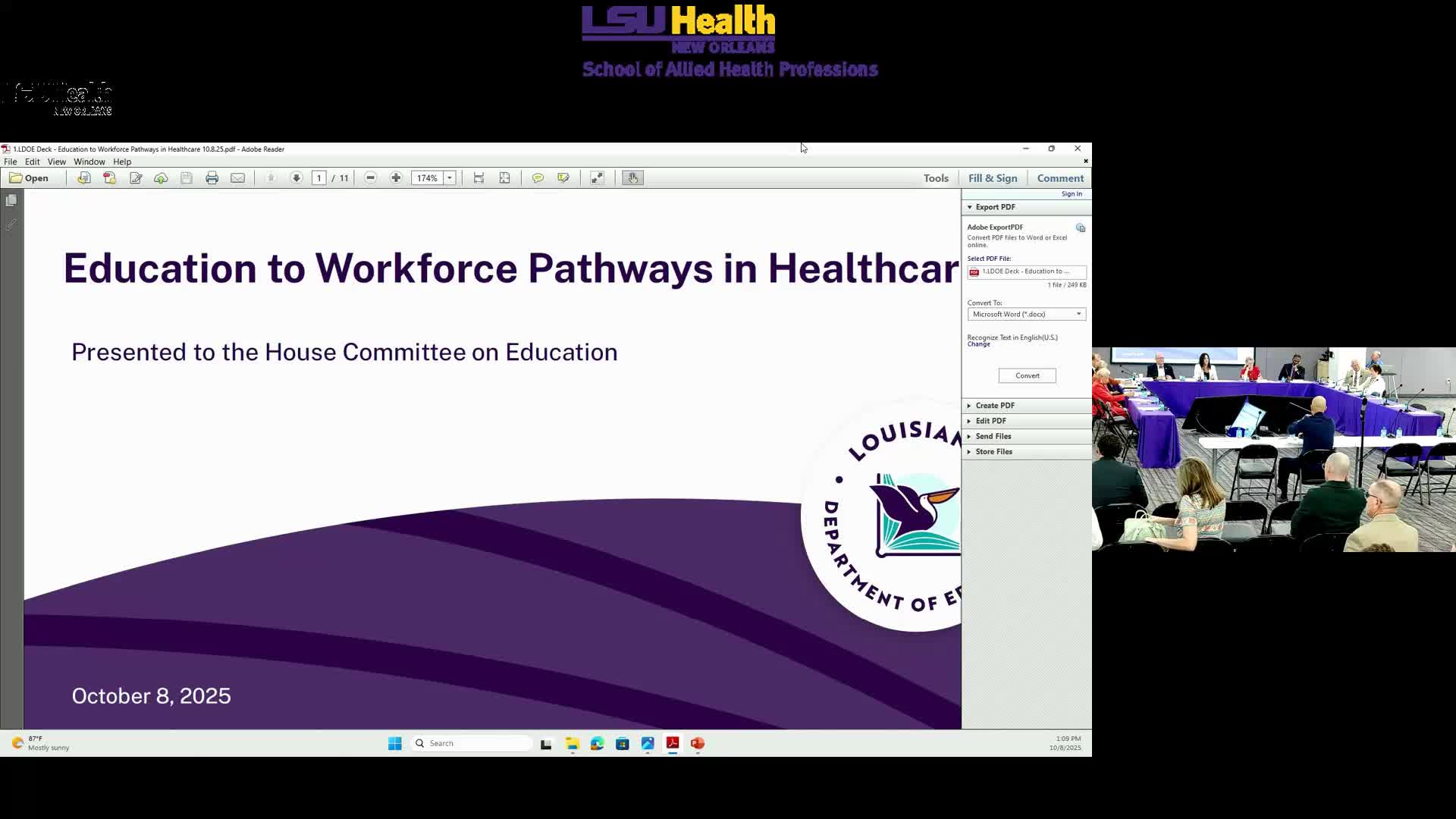State education officials outline K‑12 career and technical funding and credential pathways for health careers
Get AI-powered insights, summaries, and transcripts
Subscribe
Summary
The Department of Education described how Louisiana high school diplomas, funding weights, and federal and state grants support health-care credentials, dual enrollment, apprenticeships and internships. Officials said career and technical paths are more costly to operate but now earn accountability points and targeted funding.
Ken Bridal, chief of staff at the Louisiana Department of Education, briefed the committee on the state's career and technical education (CTE) offerings and funding that support health-care pathways from middle school through college.
Bridal summarized Louisiana's two high‑school diploma tracks (TOPS University and Jump Start/TOPS Tech) and described the range of credentials a student can earn: basic industry‑based credentials (CNA, pharmacy tech), advanced credentials (CMA, EMT/paramedic), bundled certificates, certificate of technical studies (LCTCS), and full associate degrees through so‑called fast‑forward pathways.
Nut graf: Bridal emphasized that CTE programs cost more than standard classroom instruction but receive separate funding in the state formula (MFP) and from federal and targeted grants. That funding underpins instructor training, assessments, dual enrollment, registered apprenticeships and a new internship incentive.
Key funding details he gave the committee: a baseline CTE weighting in the Minimum Foundation Program (MFP) that generates roughly a 6% supplemental allocation per CTE course; an additional "high‑wage, high‑demand" career development weight (another ~6%) for certain courses; a $9 million annual Carl Perkins federal allocation distributed regionally; TOPS Tech Early Start support for dual enrolled college credits; and a $2,500 state add‑on per high‑school student in a registered apprenticeship plus $1,000 per student for a qualifying work‑based learning internship.
Bridal said the state has aligned accountability to reward schools whose students earn credentials, internships or apprenticeships—changes he called important because they recognize work‑based learning that previously counted for zero accountability points.
He and school leaders described barriers: rural access, instructor shortages (faculty with clinical skills are expensive and in high demand), and limited employer ability to host interns — employers and some hospitals cannot pay minors or deploy staff to serve as trainers without incentives. The department said it is providing school systems with quarterly reports on career funds and working to expand internship and apprenticeship opportunities with industry partners.
Ending: Bridal urged stronger local employer‑school partnerships and use of funding streams to expand access in rural areas and said the department is actively working with school systems and industry to expand internships and registered apprenticeships across the state.
